Types of Florida and Alabama Insurance Policies
Experienced attorneys helping policyholders throughout the Southeast
There’s an old joke about the man who prays to God each day and asks, “Please God, could you let me win the lottery just once?” After numerous requests, God says to the man, “I will help you, my son – but you have to buy a ticket.”
The same logic holds for insurance claims. In order to file for insurance proceeds after a fire, a flood, a hurricane, or the interruption of a business, you need to have the correct policy. We want you to know a bit about the types of policies there are, so that you can make the right decisions for your needs. If an insurance company still denies you a fair payment, Warhurst Law may be able to help. Contact us if you have questions.
The main types of insurance policies homeowners and businesses should purchase
Every person who has a financial investment in a home, nonprofit or church, commercial property, or any asset should consider buying the following insurance policies:
- Homeowners’ or rental insurance. Everyone who owns a home should have insurance to pay for repairs and damage to personal possessions. Homeowners need to understand what events are covered and which ones aren’t. Typically, hurricanes, tornadoes, fires, and other natural disasters are covered. There are exceptions though. Some damages like flood damage aren’t covered. The policy should also make clear how damages are valued. If your sofa is burned to a crisp, you want enough cash proceeds to buy a new sofa. If your roof blows off, you want enough funds to replace it with a new one.
- Business property owner’s insurance. This is generally the same type of insurance as homeowners’ insurance except that it is purchased by business owners for their offices, buildings, and other physical structures.
- Flood insurance. Generally, a homeowners’ policy does not cover damage from floods. Flood damage usually means damage from heavy storms or from other types of natural disasters. Home and property owners need to buy separate flood insurance which should be available in most communities through the National Flood Insurance Program.
- Wind and hail. You need to check your homeowners’ policy and business property policy to see if damage from hailstones and wind are covered. Hail and wind can damage roofs, windows, the exterior of your property, and sometimes even the interior of your property. If you’re in doubt, an experienced insurance attorney can explain if you’re covered. If the homeowners’/business property owner’s policy doesn’t cover wind and hail, you should be able to purchase a separate wind and hail policy.
- Business interruption insurance. If your property needs repairs or needs to be rebuilt due to a storm, then you won’t be able to meet customers, clients, and patrons. Business interruption insurance helps you:
- Recover any lost revenue
- Provides expenses to relocate
- Helps with overhead and employee costs
- Should pay for getting your business back online
- Many other issues
The main idea behind business interruption insurance is that you shouldn’t lose money due to a disaster. Business insurance isn’t just for commercial properties. Churches, synagogues, charities, and nonprofits can all buy business interruption insurance because all these entities have expenses and do generate revenue.
Additional useful insurance policies
Some of the other insurance policies people and businesses need are:
- Vehicle liability insurance. Florida and Alabama both require that you have minimum liability insurance if you get into an accident. You should consider buying more than the minimum. You should also consider buying underinsured/uninsured coverage in case someone hits your car and he or she can’t pay for the damages.
- Vehicle collision insurance. This covers the cost to fix or replace your vehicle if you cause an accident and your car is damaged or totaled.
- Workers’ compensation insurance. Most Florida and Alabama companies are required to have work injury insurance in case an employee gets hurt on the job or develops an occupational illness.
- Disability insurance. This policy provides benefits if you become disabled and can’t earn a living.
- Life insurance. This coverage pays your family and designated beneficiaries the policy limits in the event of your death.
- Health insurance. Everyone should have health insurance if they become ill for any reason. Many people have health insurance through their work. Others have insurance through the Affordable Care Act, Medicaid, or Medicare. Retired military veterans and family members can usually use Tricare.
Common insurance coverage issues
For most types of insurance policies, the owner of the policies needs to understand these additional coverage issues:
- There are two types of exclusions in insurance policies:
- An all-risk (peril) policy covers every type of property damage from most causes– unless there is an exclusion.
- A named peril insurance policy only covers risks that are identified in the policy and all other losses are excluded.
- This is the amount you pay before the insurance company is required to pay anything. For example, if you have a $1,000 deductible and the cost to repair your roof is $5,000, the insurance company that covers roof damage will only pay you $4,000. In most policies, the deductible is a specific dollar amount. In some policies, especially in hurricane prone areas, the deductible is a percentage of your claim. For example, a 5% deductible on a $100,000 claim would mean that you are paid $95,000.
- A rider is essentially an addendum or a modification of your insurance policy. Instead of rewriting the whole policy, a rider is used to cover any changes or additions to your insurance policy. For example, a rider may add or delete an exclusion, or it may change the amount of payment due when an event such as fire or hurricane damages your home. A rider that adds or deletes benefits often also means the amount of the premiums will be adjusted.
The language in insurance policies should be precise. It should be clear what is covered and what’s not covered. An experienced insurance dispute lawyer fights to interpret every word, phrase, and comma for your benefit and not the benefit of the insurance company. We review and explain each condition and requirement in your contract.
Talk with an experienced Florida or Alabama insurance lawyer before you buy insurance and after an accident or natural disaster
Call Warhurst Law at 251-694-1932 or complete our contact form to schedule an appointment with an experienced insurance lawyer. We guide property and business owners through each stage of the insurance dispute process. We help insureds fight insurance companies throughout the Southeast including the Florida Panhandle, the Gulf Coast, and Mobile, Alabama.
* Warhurst Law cannot and does not guarantee an outcome to any case.

